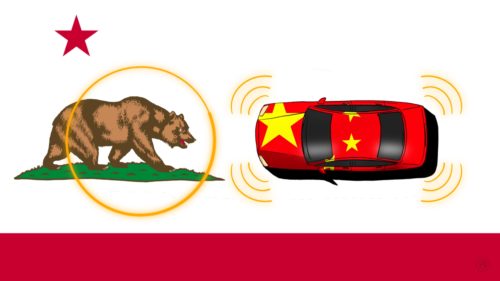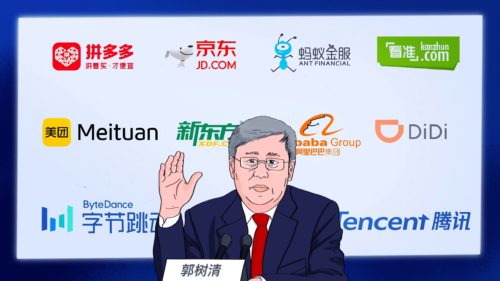To self-operate or to aggregate? China’s car-hailing industry seeks a profit model
Market leader Didi’s regulatory problems have opened up the market to new players, including a range of new aggregator apps that have found a way to actually turn a profit amid tightening government regulation.

Last week, the Ministry of Transport released the latest data for China’s car-hailing industry, i.e., rides that are ordered online, usually via a smartphone application. As of September 30:
- There are a total of 286 online car-hailing companies in China.
- Authorities have issued a total of 4.816 million online car-hailing driver’s licenses and 198.7 million vehicle certificates.
- In September, the government regulatory platform received a total of 554 million ride orders, a decrease of 21.2% month-on-month.
The government data distinguishes between self-operated car-hailing companies, which maintain fleets of vehicles and drivers, like market leader Didi 滴滴出行, Caocao 曹操出行, On Time 如祺出行, SAIC Mobility 享到出行, and T3出行, and online platforms that provide car-hailing services from various self-operators, the so-called “aggregators” like AutoNavi Information Technology 高德打车 (backed by Alibaba 阿里巴巴集团), Huawei’s Petal 出行, and platforms backed by Meituan 美团打车 and Ctrip 上海携程. In September, the aggregators completed 135 million orders, a decrease of 19.2% month-on-month.
Overall in September, the self-operators accounted for about 80% of the market, and the aggregators for about 20%.
Many players but no profit in sight — until now?
Car hailing is a rapidly expanding industry in China. According to data by the China Internet Network Information Center, by the end of 2021, there were a total of 453 million car-hailing users, a year-on-year increase of 87.33 million. More than 1,000 new companies were officially registered in the industry last year.
Didi has been the clear market leader in China’s car-hailing industry for the better part of the last decade, holding a market share of 80-–90% with about 500 million active users and tens of millions of drivers. In 2021, however, Didi was confronted with a regulatory probe that would eventually culminate a year later in an 8 billion yuan ($1.28 billion) fine. Didi’s troubles have opened the way for other players to make headway in the market, including a range of new players using the aggregator model.
But self-operated platforms are rising, too: One of the rising stars in the self-operator model is T3, a joint venture established in 2019 by FAW Group 第一汽车集团, Dongfeng Motor 东风汽车, and Chongqing Changan Automobile 重庆长安汽车. According to an industry report, T3’s market share increased from 3.1% in July 2021 to 11.6% in January 2022. According to the company’s CEO, as of August, T3’s daily orders exceed 3 million, the cumulative number of registered users exceeds 110 million, and the number of registered drivers exceeds 800,000.
None of these players, old and new, however, has ever made a profit. In 2020, for example, Didi made a net loss of $10.60 billion, and a further $7.74 billion in 2021. The industry has been (and mostly still is) in a cash-burning phase, as scaling up requires substantial investment in vehicles and drivers.
But according to a recent report, AutoNavi has recently been able to do the unthinkable: After its daily orders increased from about 2 million in July 2021 to about 6–7 million in September 2022, AutoNavi has just turned a profit. Acquired by Alibaba in 2013 as a purely navigational app, AutoNavi absorbed around 8.8 billion yuan ($1.21 billion) in investment from Alibaba, and entered the car-hailing industry in 2017. The AutoNavi app now aggregates about 160 car-hailing self-operators, which are paired with AutoNavi’s navigational app, which has around 120 million daily active users.
On the one hand, AutoNavi’s breakthrough into profitability is seen as a landmark event for the industry, but on the other hand, it is also a pessimistic outlook on the high costs and heavy assets of the self-operators with their fleets of cars and drivers. It’s not clear if AutoNavi can survive if the self-operators don’t burn cash.
The struggle to comply and slim profits
Compliance with government regulations is a fundamental issue for China’s car-hailing industry. From July 2016, when the government promulgated interim measures for the online taxi booking industry, car-hailing platforms have required three separate (sets of) certificates: a company business license (including separate licenses in various local areas), the requisite driver certifications, and transportation certificates for the vehicle.
While its lightweight business layout allows AutoNavi to eke out a small profit, it has, like the other aggregators, been plagued by low compliance rates. In the second half of 2021, AutoNavi was fined by the Ministry of Transport for failing to obtain a local car-hailing business license, and undertaking orders with unlicensed vehicles. In September, AutoNavi’s compliance rate was only about 50%, according to Sina.com. With less control of the drivers and vehicles used on their platforms, the aggregators are also the subject of a much higher number of complaints by users due to a lack of service consistency and scheduling efficiency.
Yet even for Didi, with its large fleet of cars and drivers, compliance is a serious challenge. In July, for example, Didi’s compliance was only 55.6%, while for smaller players like T3, compliance rates are much higher, in excess of 80%. In essence, self-operators are burning through cash trying to provide enough fully licensed cars and drivers to service the expanding market, while the aggregators are struggling even more with compliance and quality control.






